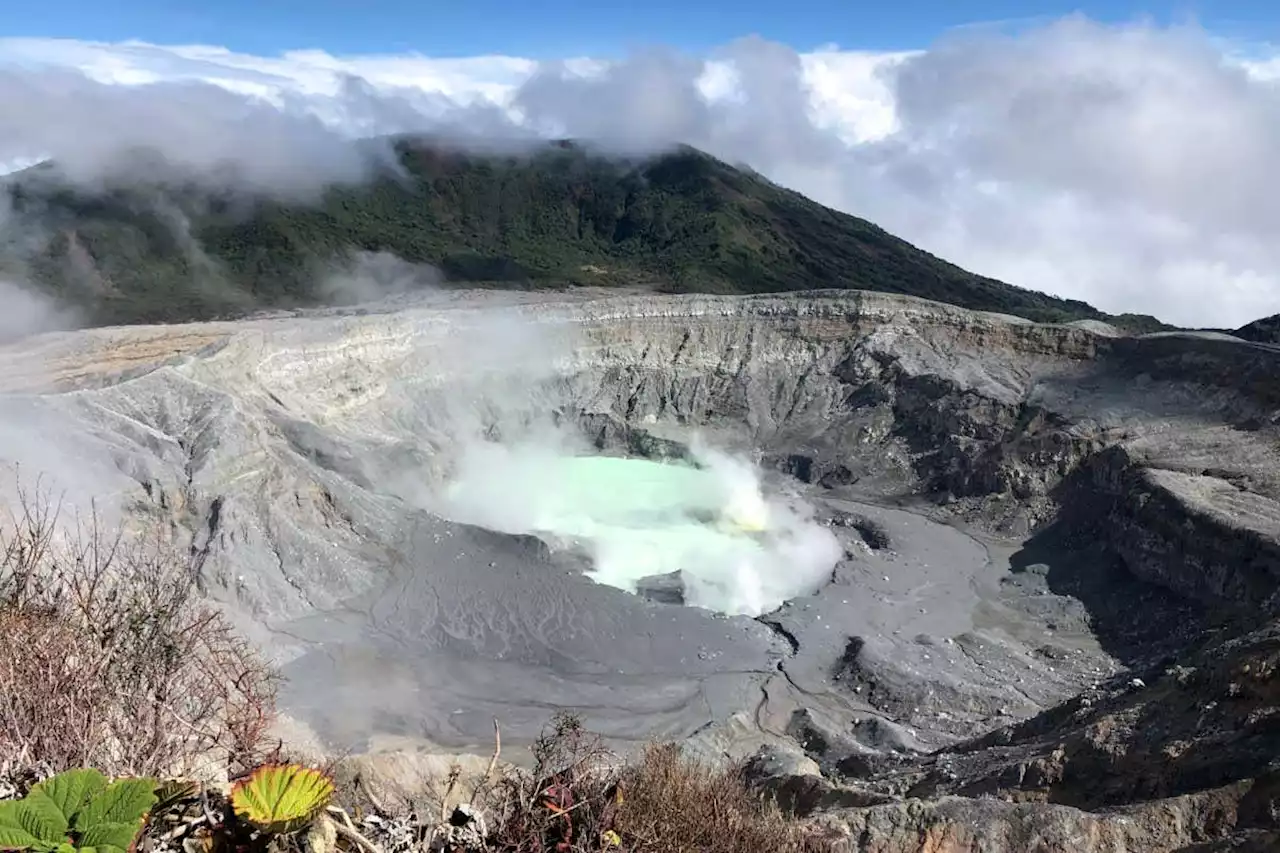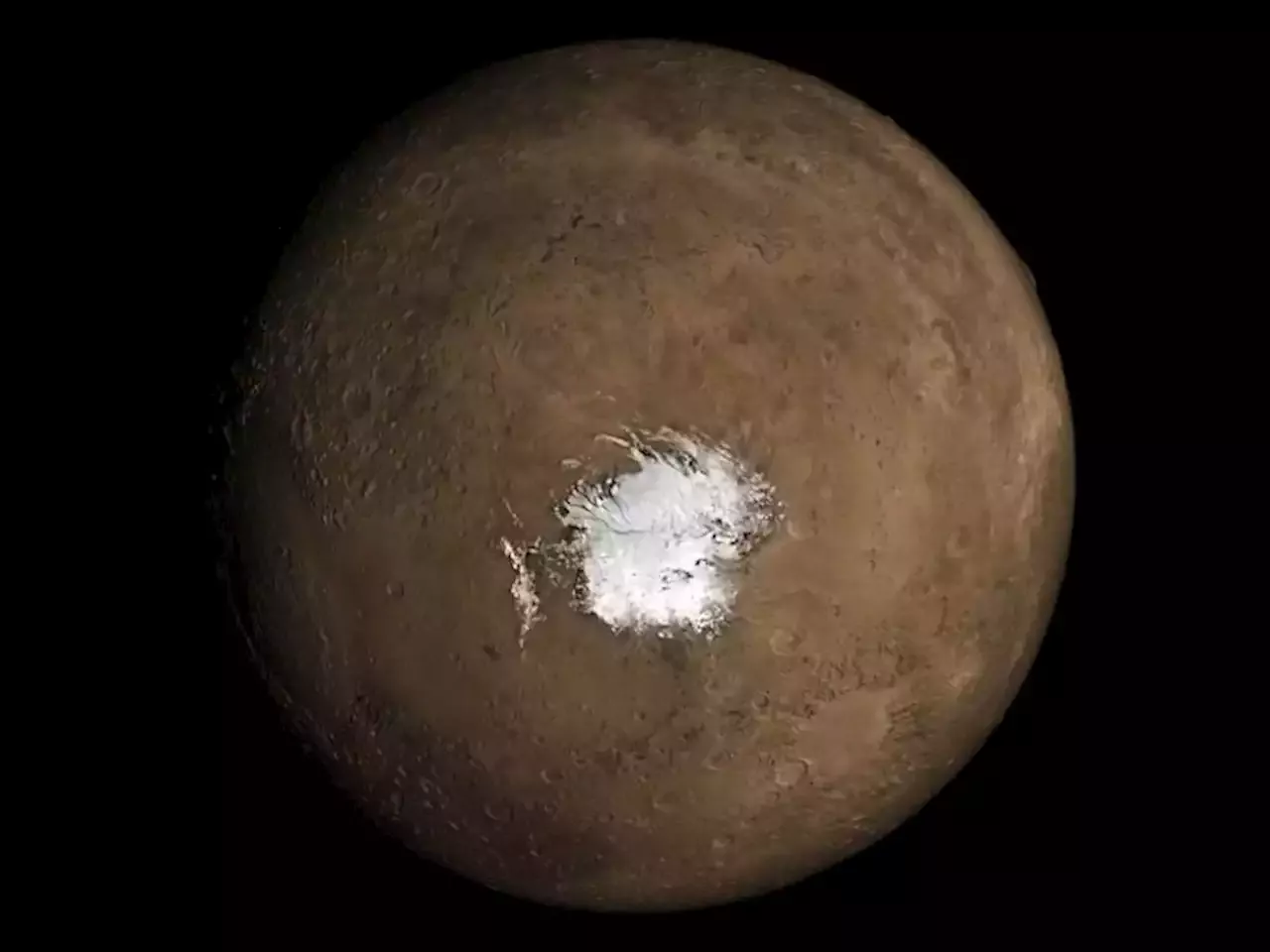The underground lake at Mars south pole? It's probably not clay, and it's probably not lava, according to a new paper. But we need better data!
It measures the subsurface composition of Mars and searches for frozen water. In a nutshell, liquid water and frozen water return different signals; liquid water is more reflective than frozen water.
But the new research letter doesn’t agree. The authors acknowledge the counter-explanations for the MARSIS signal, but they offer counter-counter-explanations. They discount clays, metallic minerals and salty ice as explanations. “Combining previous published data, simulations, and new laboratory measurements, we demonstrate that the dielectric properties of these materials do not generate strong basal reflections at MARSIS frequencies and Martian temperatures,” they write.
Temperature is a critical factor in this issue. We don’t know what the temperature is one-and-a-half kilometres below the Martian surface. It’s too low for liquid water, but it can remain liquid at lower temperatures if the water is briny. The temperature also affects the permittivity of different materials and the data that MARSIS gathers.
“Our dielectric measurements on Mg2 and CaCl2 brines at Martian subglacial conditions rule out also salty ice as the cause for MARSIS bright reflections,” they write in their paper’s conclusion. This back-and-forth shows the power of the scientific method. Nobody’s saying the data’s wrong; they’re just engaging with the evidence and reaching different conclusions.
United States Latest News, United States Headlines
Similar News:You can also read news stories similar to this one that we have collected from other news sources.
 Mysterious bright spots fuel debate over whether Mars holds liquid waterBright spots on Mars could be ice covering volcanic rock, which a team of researchers says explains unusual radio detections.
Mysterious bright spots fuel debate over whether Mars holds liquid waterBright spots on Mars could be ice covering volcanic rock, which a team of researchers says explains unusual radio detections.
Read more »
 Bacteria survive extremes that may have existed in ancient Mars lakesBacteria have been found surviving in the extreme conditions of a crater lake in an active volcano in Costa Rica, which may mimic conditions of ancient lakes on Mars
Bacteria survive extremes that may have existed in ancient Mars lakesBacteria have been found surviving in the extreme conditions of a crater lake in an active volcano in Costa Rica, which may mimic conditions of ancient lakes on Mars
Read more »
 Mysterious bright spots fuel debate over whether Mars holds liquid waterBright spots on Mars could be ice covering volcanic rock, which a team of researchers says explains unusual radio detections.
Mysterious bright spots fuel debate over whether Mars holds liquid waterBright spots on Mars could be ice covering volcanic rock, which a team of researchers says explains unusual radio detections.
Read more »
